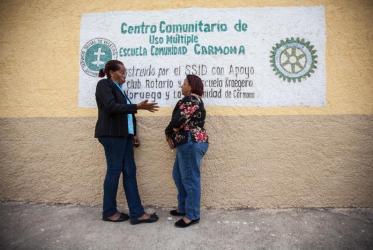Displaying 81 - 100 of 106
04 February 2016
Jürgen Moltmann leads ecumenical reflections in Geneva
14 January 2016
WCC urges responsibility for and support to the refugees in Europe
04 September 2015
Church leaders address statelessness in Dominican Republic
03 February 2015
Use of armed drones condemned by WCC
13 February 2014
Churches commemorate Week of Prayer for Christian Unity
24 January 2014







